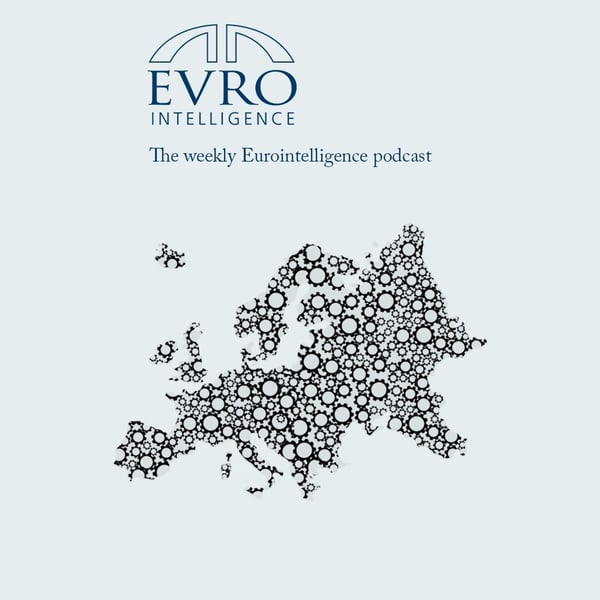The centre is not holding
The Eurointelligence Podcast
Wolfgang Munchau
4.5 • 30 Ratings
🗓️ 29 June 2024
⏱️ 33 minutes
🧾️ Download transcript
Summary
Transcript
Click on a timestamp to play from that location
| 0:00.0 | Welcome to the Eurointelligence podcast. I'm Wolfgang Munchau and with me are Suzanne Moncheng and Jack Smith. |
| 0:06.3 | Today is Friday the 28th of June, the day after the European Council meeting, which nominated Osala von der Leyen, Kaya Kalas, as president of the Commission and high representative for foreign security policy, respectively, |
| 0:21.3 | and which voted for Antonia Costa to become the next president of the European Council. |
| 0:26.9 | Georgian Meloni regards this as a big stitch-up and a classic reversion to the centrist coalition |
| 0:33.6 | in European politics. We have yet to see whether this majority holds. The European |
| 0:40.1 | Parliament has the final say on the appointments for the Commission, certainly for the Commission |
| 0:44.4 | President. The discussion we would like to have today is about centrist policies in Europe, about |
| 0:50.2 | whether it is right for the Centre to do what it did, whether it should bind |
| 0:55.1 | Maloney in, what alternative options would be, arithmetic. There are not many |
| 0:59.8 | arithmetic alternatives, but there are political alternatives. We would also |
| 1:05.3 | like to discuss the historical context of populism in Europe. We associate |
| 1:09.0 | populism with a phenomenon of the right today, |
| 1:11.5 | but that wasn't always the case. Jack, how do you see these events? Are there majorities available |
| 1:18.2 | that would be an alternative to what we have right now? I've got to say, looking at both the |
| 1:24.0 | European Council and European Parliament, it's quite difficult. I think, |
| 1:28.4 | firstly, we have to say most of our listeners will probably be aware of this, but for those who |
| 1:32.5 | aren't, on the European Council, when you try to kind of nominate a president of the European |
| 1:36.9 | Commission or the kind of other leadership that you have to nominate at this point as part of the |
| 1:41.0 | commission, it has to be done by a qualified majority. And that qualified |
| 1:45.3 | majority is based both on a qualified number of countries voting in favor, but most importantly, |
| 1:50.2 | countries representing a certain proportion of the European Union's population voting in favor. |
| 1:55.1 | So this is quite a different dynamic from when national governments form, when you typically only |
... |
Please login to see the full transcript.
Disclaimer: The podcast and artwork embedded on this page are from Wolfgang Munchau, and are the property of its owner and not affiliated with or endorsed by Tapesearch.
Generated transcripts are the property of Wolfgang Munchau and are distributed freely under the Fair Use doctrine. Transcripts generated by Tapesearch are not guaranteed to be accurate.
Copyright © Tapesearch 2025.

